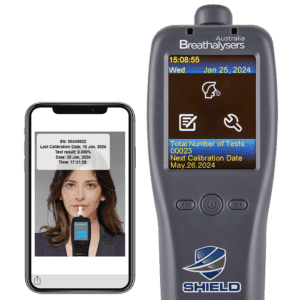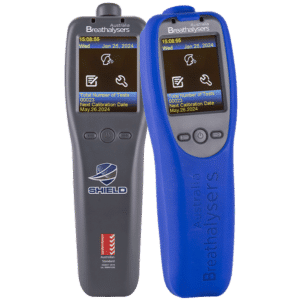Alcohol Abuse Screening Test: Definition, Types, and Procedure
05 January, 2024

An alcohol abuse screening test is a brief assessment to determine if a person has addiction problems. It is a simple questionnaire format that helps reveal the alcohol consumption patterns or behaviour of a person. The test usually includes questions about the amount and frequency of alcohol intake. Through this simple method, healthcare providers can note the potential risks and provide intervention. Therefore, it can help limit or reverse the impact of excessive drinking.
Alcohol use disorder is a serious medical condition that can affect people of various ages. It is characterised by the inability to control consumption despite its negative effects. It often leads to several chronic diseases and safety risks. Thus, recognising the early signs of alcohol misuse can help address the problem and prevent it from escalating. This article will present what alcohol screening tests are for, the types of screening questions, and how to take the test.
What Is an Alcohol Abuse Screening Test?
An alcohol abuse screening test is an assessment tool to see if an individual has a drinking problem or is at risk of developing one. It is used by health professionals or can be self-administered. It consists of a series of questions that evaluate various aspects of drinking behaviour, such as the frequency and quantity of intake.
The purpose of the test is to provide an objective measurement of the alcohol use patterns of an individual. The test also includes cravings for alcohol or withdrawal symptoms. Thus, it helps healthcare providers determine if the drinking habit is within the healthy limit. It also helps to identify any signs of alcohol dependence.
The test can be administered in primary care settings, hospitals, or substance abuse treatment centres. Individuals may also take the test privately through online questionnaires or test forms. At the end of the test is a guide on how to calculate and interpret the results. Moreover, the results can help identify individuals who may benefit from further assessment or rehabilitation treatment.
Signs of Alcohol Addiction
- Increased tolerance to alcohol, leading to consuming larger amounts to achieve the same effect.
- Having strong cravings or urges to drink more than intended.
- Experiencing withdrawal symptoms when trying to quit or cut down on drinking.
- Neglecting responsibilities at work or home due to excessive alcohol consumption.
- Continued drinking despite negative consequences, such as relationship problems or health issues.
- Binge drinking or consuming large amounts of alcohol on a single occasion or short period.
- There is a feeling of guilt after heavy drinking.
- Consuming alcohol several times per month consecutively despite the financial strain it causes.

Types of Alcohol Abuse Screening Tests
There are several types of alcohol abuse screening tests to help evaluate a person. Each type may be suitable for particular situations or settings, such as screening programs, counselling, emergency departments or clinical settings. One of the most widely used tests is the Alcohol Use Disorders Identification Test (AUDIT). It consists of 10 questions relating to alcohol use patterns, as well as experiences and problems related to alcohol.
The Cut-down, Annoyed, Guilty, Eye-opener (CAGE) questionnaire is another type of screening method to diagnose alcoholism. This test consists of four questions that focus on the feelings of guilt and attempts to cut down on drinking. The test is straightforward to administer, making it suitable for situations that need a quick screening.
Furthermore, the Michigan Alcohol Screening Test (MAST) comprises 25 questions to identify potential alcohol-related problems. It includes the risks associated with harmful drinking, loss of control, and neglect of responsibilities. Clinicians use this in interviews to get a more comprehensive assessment.
Are These Tests Reliable?
The alcohol use screening tests are generally reliable indicators of alcohol misuse. For instance, one positive answer in CAGE or other brief screening tools may be considered positive for alcohol addiction. However, there may be certain limitations that affect the reliability of the test, such as age, gender, and cultural background.
Thus, healthcare professionals may combine the use of screening tests with laboratory testing for the diagnosis of alcohol dependence. Urine or hair tests can help trace alcohol use in the past weeks or months. In particular, the long detection window of the hair test can reveal consumption patterns or periods of abstinence.

How to Take an Alcohol Abuse Screening Test
Taking an alcohol abuse screening test can be a vital step for individuals who are concerned about their drinking habits. It is best to discuss with a provider about taking an assessment test to determine a reliable screening tool. The doctor can provide information on the type of test, how to answer the questions and interpret the results accurately.
Depending on the test, an individual may need to answer questions online or fill out a form. People must answer the test honestly to gain a clear understanding of their drinking habits. After completing the test, the clinician tallies the score and explains the results. If the score indicates high risk, it is vital to seek further evaluation.
It is worth noting that a positive result does not automatically mean that a person has a disorder or addiction problem. These tests provide an initial indication of problematic drinking. However, it is beneficial in recognising potential issues and taking the necessary steps towards seeking help. Treatments may include psychotherapy, medication, lifestyle changes, and support groups.
Who Can Conduct the Screening?
Healthcare professionals or mental health providers can typically conduct the screening test. These include therapists, psychiatrists, psychologists, and counsellors. These professionals have the knowledge and expertise to administer the test and precisely interpret the results. Furthermore, they are trained to ask the right questions and provide guidance and support.
Doctors may also administer the test as part of a routine medical examination. Additionally, professionals who specialise in substance abuse can identify signs of alcohol misuse and provide detailed interviews and assessments. Some tests may be self-administered for those who do not feel comfortable seeing a doctor.
Conclusion
The alcohol abuse screening tests are valuable tools for identifying individuals at risk of developing alcohol-related problems. They are standardised forms of assessment used by clinicians and health professionals. They are also available online for individuals to take personally to see their level of risks. Thus, people will know when to seek help or support. The most common types are AUDIT, CAGE, and MAST. They contain questions regarding alcohol drinking patterns and related consequences.
While these tests are generally reliable indicators of alcohol misuse, it is essential to consider certain limitations based on individual differences. Individuals need to answer the questions honestly to ensure accurate results. In addition, combining these helpful tests with laboratory examinations can help give a comprehensive overview. Finally, it is crucial for people who receive a positive result to seek further evaluation and pursue treatment options.






























